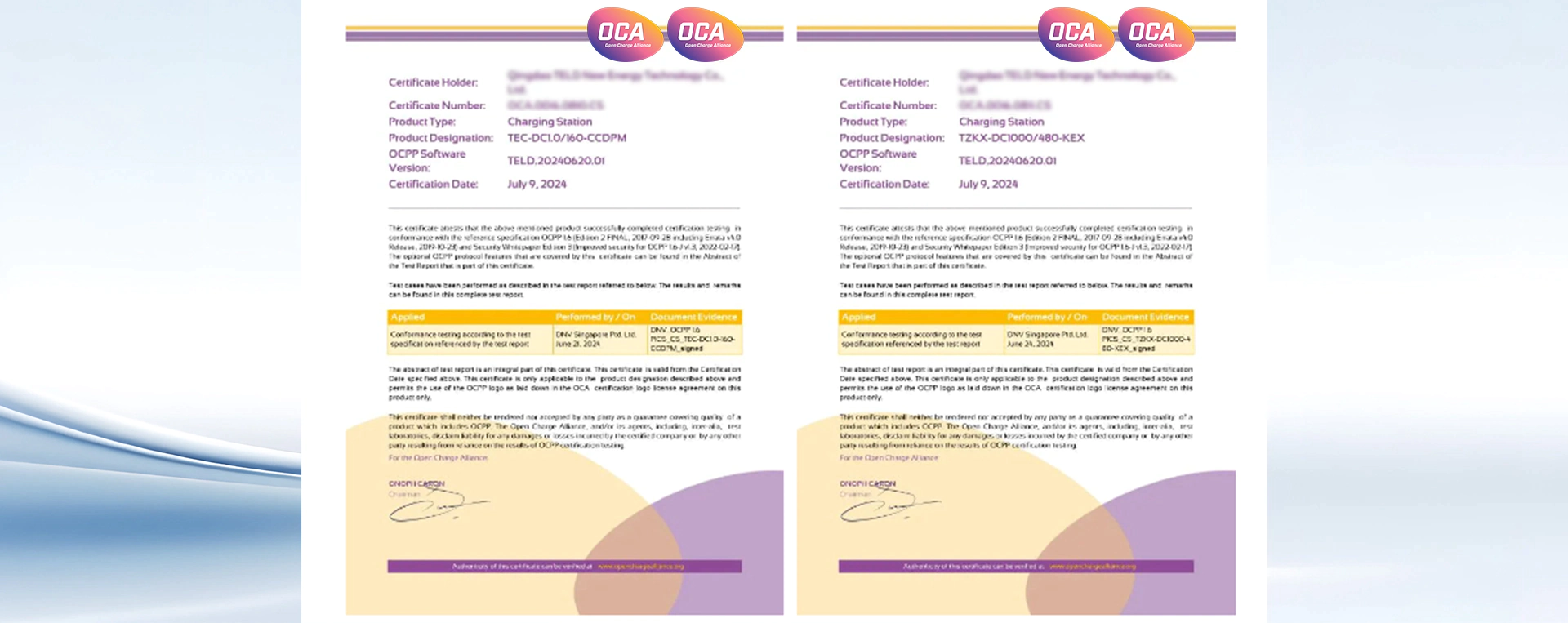
Charging OCA certification
The OCA certification test for EV charging stations is a certification program initiated by the Open Charge Alliance (OCA) to validate that charging station devices and their backend management systems (CSMS) comply with the Open Charge Point Protocol (OCPP) standards. It is also referred to as OCPP protocol certification. This certification is crucial for manufacturers aiming to expand into international markets.
▶ Certification Types
- Full Certification: Covers all OCPP functionalities to ensure the device fully complies with the protocol specifications.
- Subset Certification: Focuses on testing specific functionalities or application scenarios.
- Security Certification: Concentrates on data encryption, certificate management, and communication security.

▶ Certification Bodies
The DNV Singapore Testing Laboratory is one of eight globally designated independent certification labs by OCA and the only OCPP testing lab in Southeast Asia. DNV ensures high-quality and rigorous interoperability testing to meet certification standards.
▶ Certification Process
1. Preparation Phase:
- Ensure hardware and software support the targeted OCPP version (e.g., 1.6J or 2.0.1).
- Set up a testing environment, including the charging station, central management system, and testing tools.
2. Functional Testing:
- Validate core features such as starting/stopping charging sessions, transaction data transfer, and payment authorization.
- Test communication stability and error handling in special scenarios.
3. Security Testing:
- Check TLS encryption, client authentication, and secure event logging.
4. Interoperability Testing:
Ensure seamless collaboration with systems from different providers to avoid communication issues.
5. Third-Party Validation:
- Submit the device to an OCA-authorized independent lab (e.g., DNV Singapore) for comprehensive testing.
6. Certification Issuance:
- Upon passing all tests, the device receives an official OCA certification.
▶ Importance of Certification
Obtaining OCA certification ensures that charging stations can integrate seamlessly with OCPP-compliant management systems worldwide. It provides users with a reliable, secure, and efficient charging experience while enhancing manufacturers’ competitiveness and facilitating entry into global markets.